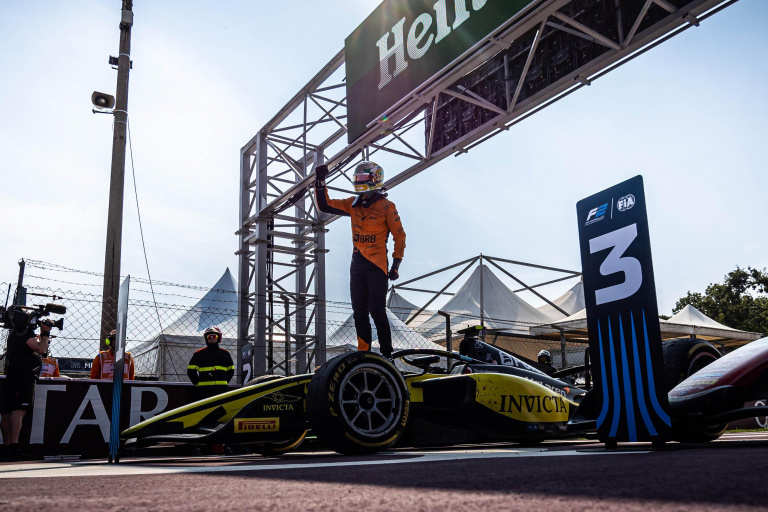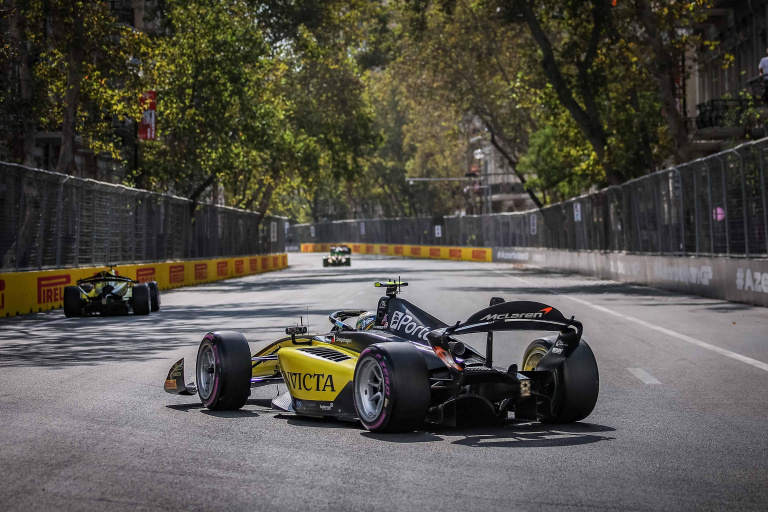©: Dutch Photo Agency
Time is everything in motorsport.
Every fraction of a second counts on the racetrack. Precision, consistency and split-second decision-making define the sport.
That’s why accurate timekeeping isn’t just a helpful tool – it’s a core component at the heart of racing. It can be the difference between victory and defeat.
Evolution of time
Motorsport has always been a battle against the clock. But how time is measured has changed dramatically.
In the early days of racing, lap times were recorded manually with stopwatches – reliable only to a point, and prone to human error. As the sport grew more competitive, the demand for precise, real-time data increased.
With the rise of technology, timing systems evolved. Today, cutting-edge technology measures time down to the thousandth, or even a ten-thousandth, of a second, offering unparalleled accuracy to times far quicker than the mind can register.
No more guesswork. Just pinpoint accuracy.
![An Invicta Racing mechanic looking at his watch]()
Timing is strategy
When the racing is close and margins are tight, strategy is key. Thousandths of a second make all the difference. From qualifying laps to pitstops and strategic calls, timing data dictates nearly every aspect of a race weekend, guiding every decision.
“Every decision in the team is built around time. We treat every second like a decision point, because races aren’t just won on track, they’re won in the timing of every call we make,” says James Robinson, CEO & Team Principal of Invicta Racing.
“The engineers are not just watching lap times, they’re projecting gaps, estimating tyre drop-off and modelling scenarios in real time. Whether that’s making an early pit stop for the undercut or waiting it out for a Safety Car which may never come.
“Time is used just as precisely as any other tool in the garage.”
Teams analyse sector-by-sector lap data to find opportunities – where time is gained, where it’s lost, and how performance can be optimised. The difference between pole position and tenth on the grid might come down to a single corner, or even a single gear shift.
Pitstops, rehearsed continuously across a race weekend to ensure synchronicity, can make or break a race. A perfectly timed stop can leapfrog a rival. A slow one? It can undo an entire weekend’s work.
A timeless connection
Motorsport and timekeeping have been inseparable for generations. But it’s a relationship that goes well beyond the track.
Invicta Watches, known for precision craftsmanship and innovation, mirrors the same pursuit of perfection found in racing.
Their latest creation – ‘Invicta Racing Against Time’ – captures the spirit of motorsport with stunning detail: miniature race cars on a hand-crafted track, a design that celebrates both the thrill of the race and the mastery of time.
“Watches and motorsport have been closely intertwined ever since cars first started racing. Timekeeping plays a critical role in the sport, and it’s at the core of everything we do,” says Eyal Lalo, CEO of Invicta Watch Group, Chairman & Team Owner Invicta Racing.
“The same precision, accuracy and performance that define racing also drives our watchmaking. In both worlds, where every second counts, we aim for perfection.”
Motorsport is a relentless pursuit of speed, but beneath is the ultimate rival – time. It's measured, analysed, and raced against. Those who master time gain the winning edge over their competitors, and taste that coveted success on the podium.


